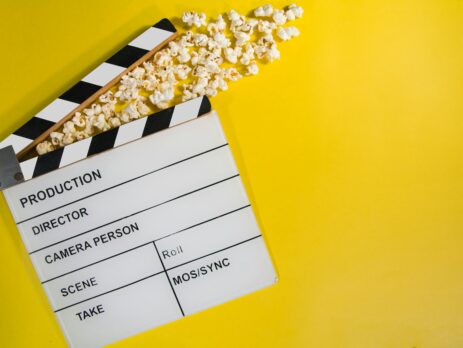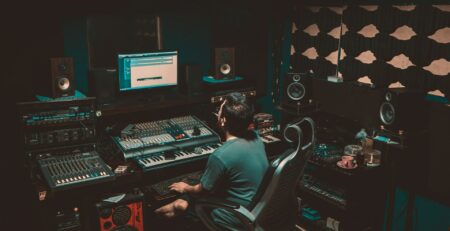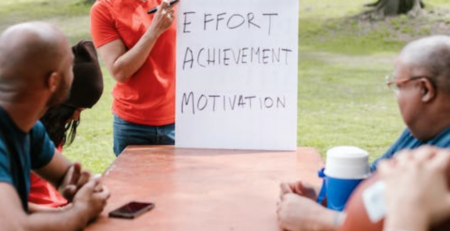Cinematic Brilliance: Tips for Recruiting Film Editors
The art of filmmaking is a complex, multifaceted endeavor that hinges not just on the actors or directors, but equally on post-production teams, particularly film editors. A film editor’s role is crucial as they sculpt the raw footage into the final cinematic product that audiences eventually see. Therefore, recruiting the right film editor is paramount to a movie’s success. This guide provides insights into the recruitment process, ensuring you attract and hire the most talented editors in the industry.
Understanding the significance of a film editor begins with recognizing their impact on the pacing, narrative structure, and overall storytelling of a film. They work closely with the director to realize a shared vision, making decisions that affect the rhythm, sequence, and mood of the outcome. The editor’s technical skills and creative insight can transform decent footage into a compelling story that resonates with its audience.
Recruiting the right film editor requires a deep understanding of what makes a great editor. This includes technical proficiency in editing software, a keen eye for detail, and a strong sense of timing and rhythm. Additionally, a good film editor must possess excellent communication skills, as they must often explain their choices and collaborate closely with directors and other team members.
The recruitment process should start with a clear definition of the project’s needs. This involves understanding the genre, style, and complexity of the film, as these factors will influence the type of editor required. Whether you need someone who excels in fast-paced action sequences or a more narrative-driven drama will dictate your hiring criteria.
Once the needs are established, sourcing candidates can begin. This might involve reaching out through industry contacts, posting on job boards specialized in film and media, or even consulting with professional organizations and guilds such as the Motion Picture Editors Guild. Utilizing platforms like LinkedIn can also help in finding professionals with the required skill set.
After gathering a pool of potential candidates, the screening process begins. Reviewing reels and past work is crucial; a reel can provide immediate insight into the editor’s style and quality of work. It’s also advisable to conduct initial interviews to gauge their understanding of film theory, their technical skills, and how well they communicate and collaborate on creative projects.
Practical tests can also be part of the recruitment process. Giving a short scene to edit can reveal an editor’s approach and adaptability to the style of your film. This step can be critical in assessing whether their vision aligns with the director’s.
Once candidates have been shortlisted, deeper engagement through detailed interviews or discussions with previous collaborators can provide further insights into their work ethic and creativity. It’s also a chance to see how they handle feedback and criticism, which are important aspects of the editing process.
Negotiating terms and ensuring competitive compensation is another vital step. Understanding industry standards for film editor salaries and contracts can help in crafting an attractive offer. Resources like How to Know if Your Salary is Competitive can provide valuable information during this phase.
Finally, integrating the new editor into your team is as important as the recruitment process. Ensuring they have the right tools, understanding the company culture, and establishing clear communication channels will facilitate a smooth transition and set the stage for successful collaboration.
Recruiting the right film editor is a blend of understanding your project’s needs, thorough screening, and ensuring a good match between the editor’s skills and the film’s requirements. By following these steps, you can significantly enhance the chances of your film’s success, making it a hit both critically and commercially.
What qualifications should I look for in a film editor?
When recruiting a film editor, the qualifications you should look for extend beyond technical skills. While proficiency in editing software like Adobe Premiere Pro, Final Cut Pro, or Avid Media Composer is essential, other factors are equally important. A strong candidate will also have a solid understanding of film theory, which includes knowledge of storytelling, pacing, and continuity. This theoretical foundation allows them to enhance the narrative effectively.
Experience is another crucial qualification. Depending on the complexity and style of your project, you may need someone with several years of experience in similar genres or projects. For example, editing a documentary requires different skills compared to a commercial or feature film. Additionally, a good film editor should have a portfolio or reel that showcases their ability to craft coherent and engaging narratives.
Soft skills such as communication, problem-solving, and teamwork are also vital. Film editing is not a solitary job; it requires constant collaboration with directors, cinematographers, and other members of the post-production team. The ability to accept and integrate feedback creatively is another important trait, as it often shapes the final version of the film.
Attention to detail is another critical qualification. Film editors must be able to identify the smallest inconsistencies in video and audio, which can be crucial for maintaining the quality of the final product. This meticulousness ensures that the film delivers a seamless viewing experience to the audience.
Finally, creativity and a passion for filmmaking are qualities that, while hard to quantify, are essential for a film editor. The best editors bring their unique vision to the project, providing creative solutions that enhance the storytelling. Their passion for the craft can be a significant asset during the long hours of post-production.
In summary, when looking for a film editor, consider a combination of technical skills, experience, theoretical knowledge, soft skills, and a passion for filmmaking. These qualifications will help ensure that the editor you choose can contribute significantly to the success of your film.

How do I assess a film editor’s portfolio effectively?
Assessing a film editor’s portfolio effectively is crucial in determining their suitability for your project. The portfolio should demonstrate the editor’s ability to craft a narrative that is both engaging and coherent. Look for a variety of work that shows versatility and a range of editing styles, especially those that match the style and tone of your project.
When reviewing a portfolio, pay attention to the pacing and rhythm of the edits. Good editors have a keen sense of timing, knowing when to cut and when to let a scene breathe, which is crucial in maintaining the audience’s engagement. Also, evaluate how the editor uses transitions and effects; these should enhance the storytelling without distracting from the content.
Another aspect to consider is how the editor handles dialogue and audio. The integration of sound with visuals is a critical skill in film editing. The portfolio should include examples of scenes where dialogue, music, and sound effects are balanced effectively to enhance the emotional impact of the scene.
It’s also helpful to look at the editor’s contributions to projects that have received critical acclaim or industry awards. Such accolades can be an indicator of quality and professionalism. However, be sure to focus on the specific contributions the editor made to these projects, as post-production is often a collaborative effort.
If possible, request before-and-after versions of scenes. This can give you insight into how the editor’s work transformed the raw footage. Understanding their decision-making process and how they solve creative and technical problems can be incredibly informative.
Lastly, consider the narrative coherence in the editor’s work. A well-edited film or scene should flow smoothly, with a clear beginning, middle, and end. Disjointed or confusing sequences might be a red flag, indicating a lack of narrative understanding.
In conclusion, assessing a film editor’s portfolio requires a detailed examination of their technical skills, creativity, and narrative ability. By focusing on these elements, you can better understand their potential fit for your project and their ability to enhance your film’s storytelling.
What are the best platforms for finding talented film editors?
Finding talented film editors can be a daunting task, but several platforms can help streamline the process. Industry-specific job boards and websites are often the best places to start. Sites like ProductionHUB, Mandy, and Stage 32 specialize in film and television production jobs and attract professional talent from across the industry.
LinkedIn is another valuable resource. It not only allows you to post job openings but also to search for professionals with specific skills or experience. The platform’s networking capabilities also enable you to receive recommendations and read endorsements from other industry professionals, which can be invaluable in assessing a candidate’s reputation and reliability.
Film festivals and industry events can also be excellent venues for meeting film editors. These events often attract a diverse range of talent, from up-and-coming editors to seasoned professionals. Participating in panel discussions and workshops can also give you insights into the latest trends and technologies in film editing.
Referrals from within your network can also be a powerful tool. Reach out to colleagues, other filmmakers, or post-production companies for recommendations. Often, the best candidates are those who come highly recommended by someone you trust.
Finally, consider using professional staffing agencies that specialize in media and entertainment. These agencies can help you find candidates who are not only skilled but also a good fit for your company’s culture and the specific demands of your project.
In summary, leveraging both online and offline resources can significantly enhance your ability to find skilled film editors. By using a combination of job boards, networking, industry events, referrals, and staffing agencies, you can access a wide pool of talented candidates.
How can I evaluate a film editor’s fit with my project’s style?
Evaluating a film editor’s fit with your project’s style is crucial for ensuring that the final product aligns with your vision. The first step is to clearly define the style and tone of your project. Whether it’s a fast-paced action film, a slow-burning drama, or a documentary, understanding these elements can help you identify the specific skills and experience needed in an editor.
Review the editor’s past work to assess their proficiency in genres or styles similar to your project. Pay attention to their use of pacing, tone, and mood in their edits. An editor whose style matches the requirements of your project is more likely to deliver a final product that meets your expectations.
During the interview process, discuss specific scenes from their portfolio and ask about the creative choices they made. This can give you insights into their thought process and whether it aligns with your creative vision.
Consider conducting a practical test where you provide the editor with a small amount of footage to edit. This can be an effective way to see how they handle your material and whether they can adapt their style to suit your needs.
Communication style is also critical. Film editing is a collaborative process, and the editor needs to be able to communicate effectively with you and other team members. During the interview, assess their communication skills and their ability to receive and incorporate feedback.
Finally, consider the editor’s enthusiasm for your project. An editor who is excited about the content and engaged with the story is more likely to contribute positively and go the extra mile to ensure the film’s success.
In conclusion, evaluating a film editor’s fit for your project involves a combination of reviewing their past work, assessing their creative and communication skills, and gauging their enthusiasm for the project. By taking these steps, you can ensure a productive and successful collaboration.
What interview questions should I ask a film editor candidate?
Interviewing a film editor candidate is a critical step in the hiring process. The questions you ask can help you gauge their technical skills, creativity, and fit with your team. Start with questions about their experience and background: ask about the types of projects they have worked on and their favorite editing software. This can give you insight into their expertise and versatility.
Ask about their creative process. For example, inquire how they approach editing a scene from start to finish and how they make decisions about cuts and transitions. This can help you understand their thought process and how they solve creative challenges.
Discuss a specific project from their portfolio. Ask them to describe a particularly challenging edit and how they handled it. This can reveal their problem-solving skills and their ability to work under pressure.
It’s also important to ask about their experience working with directors and other team members. Ask how they handle creative disagreements or feedback. This can indicate their communication skills and their ability to collaborate effectively.
Finally, ask why they are interested in your project and what they can bring to it. This can help you assess their enthusiasm and commitment to the role.
In summary, the right interview questions can provide deep insights into a film editor’s skills, work ethic, and suitability for your project. By carefully crafting your questions, you can ensure that you select the best candidate for the job.
How do I negotiate contracts with film editors?
Negotiating contracts with film editors is an essential part of the hiring process. It’s important to ensure that both parties have clear expectations about the scope of work, compensation, and timelines. Start by outlining the specific duties and responsibilities of the film editor. This should include detailed information about the project, such as the type of footage, the expected length of the finished product, and any specific editing styles or techniques required.
Discuss compensation early in the negotiations. Be transparent about your budget and ask about their rates. It’s important to ensure that the compensation reflects the complexity of the work and the experience level of the editor. Consider factors such as the duration of the project and any additional tasks that may require extra compensation, such as special effects or color correction.
Timeline is another critical aspect of the contract. Be clear about the deadlines for each phase of the editing process and discuss how revisions will be handled. It’s important to allow enough time for quality work while also keeping the project on schedule.
Ensure that the contract includes provisions for confidentiality and intellectual property rights. This is particularly important in the film industry, where creative content is highly valuable.
Finally, discuss how potential disputes will be resolved. It’s important to have a clear process in place for addressing any issues that may arise during the editing process.
In conclusion, effective contract negotiations are key to a successful collaboration with a film editor. By clearly defining the scope of work, compensation, and timelines, and by ensuring the protection of intellectual property, you can create a professional and productive working relationship.
What are common mistakes to avoid when hiring a film editor?
Hiring a film editor involves several potential pitfalls that can be avoided with careful planning and communication. One common mistake is not clearly defining the project’s requirements and the editor’s responsibilities. This can lead to misunderstandings and a final product that does not meet expectations.
Another mistake is focusing too much on cost. While budget constraints are real, choosing an editor based solely on their rates can lead to subpar results. It’s important to consider the value they bring to the project, not just the cost.
Not checking references or previous work is also a mistake. Reels and portfolios can provide insights into an editor’s style and quality, but references can provide context about their work ethic and collaboration style.
Ignoring the importance of a trial project or test edit can also be a misstep. This can be a valuable way to assess an editor’s skills and compatibility with the project before making a long-term commitment.
Finally, failing to communicate effectively throughout the project can lead to issues. Regular check-ins and feedback are essential to ensure that the project stays on track and that any issues are addressed promptly.
In conclusion, avoiding these common mistakes can help ensure a successful collaboration with a film editor. By focusing on clear communication, proper vetting, and a focus on quality, you can avoid potential pitfalls and achieve a high-quality final product.
Conclusion
In conclusion, recruiting the right film editor is a critical step in the filmmaking process. By understanding the qualifications to look for, effectively assessing portfolios, and knowing where to find talented editors, you can improve your chances of finding the right match for your project. Additionally, conducting thorough interviews, negotiating fair contracts, and avoiding common hiring mistakes are all crucial elements in fostering a successful collaboration.
Remember, a film editor not only brings technical skills to the table but also plays a key role in shaping the narrative of your film. Their creative input can transform raw footage into a compelling story that resonates with audiences. Therefore, investing time and resources in recruiting the right editor is well worth the effort.
By following the tips and strategies outlined in this guide, you can navigate the recruitment process more effectively and set your film project up for success. Whether you are working on a short film, a feature-length movie, or any other type of video content, the right film editor can make all the difference in achieving your creative vision.
Finally, always strive to maintain a good working relationship with your film editor. Respect their creative insights, provide clear feedback, and foster an environment of collaboration. With the right approach, your editor will not only contribute to the success of your current project but can also become a valuable asset for future endeavors.
Thank you for following this comprehensive guide on recruiting film editors. For more insights into managing creative projects and teams, visit our blog at icreatives Blog.
In today’s competitive market, finding the right creative and marketing expert can be a challenge. But with icreatives, you’re in experienced hands. With 37 years in staffing and a track record of matching more than 10,000 employees to over 1,000 companies worldwide, we know how to connect you with the best. Plus, you only pay if you hire—there’s no risk, only results.
Ready to find your perfect creative or marketing expert? HIRE WITH ICREATIVES today!











